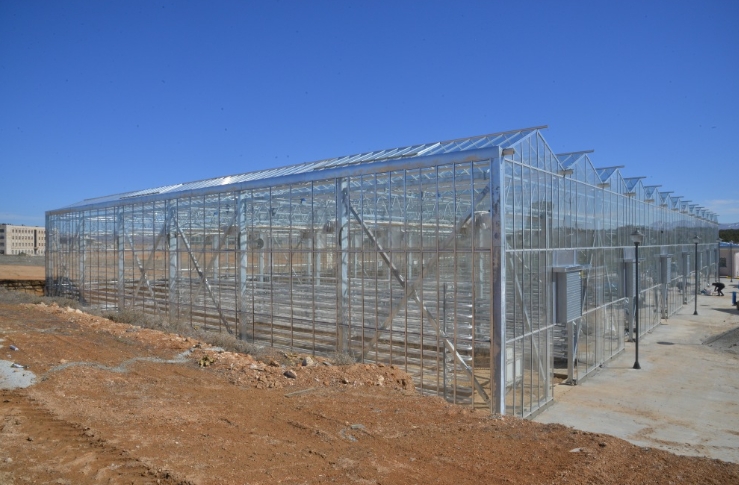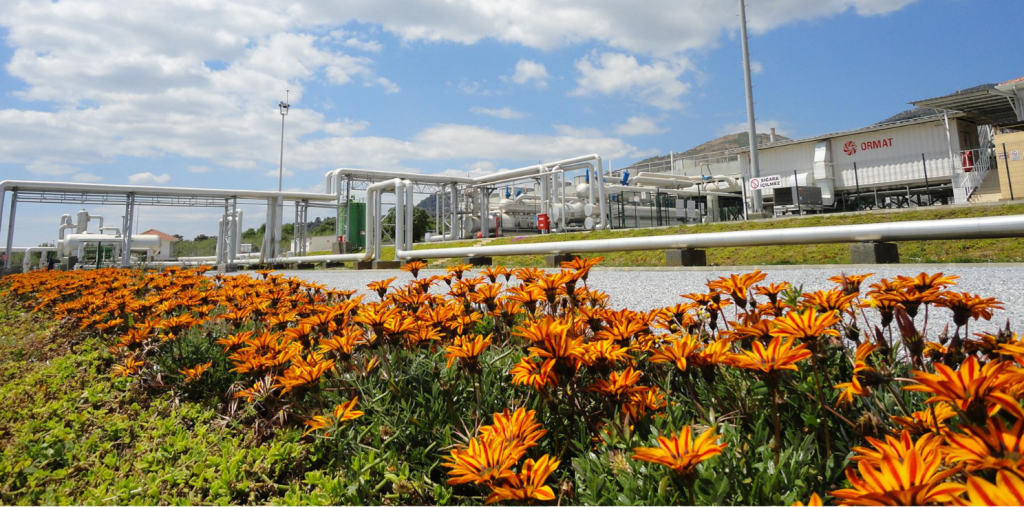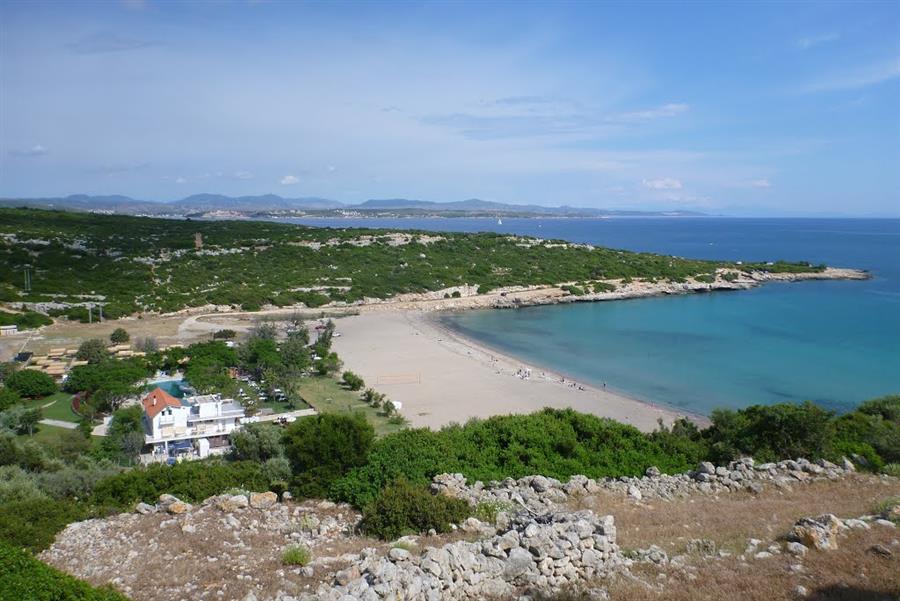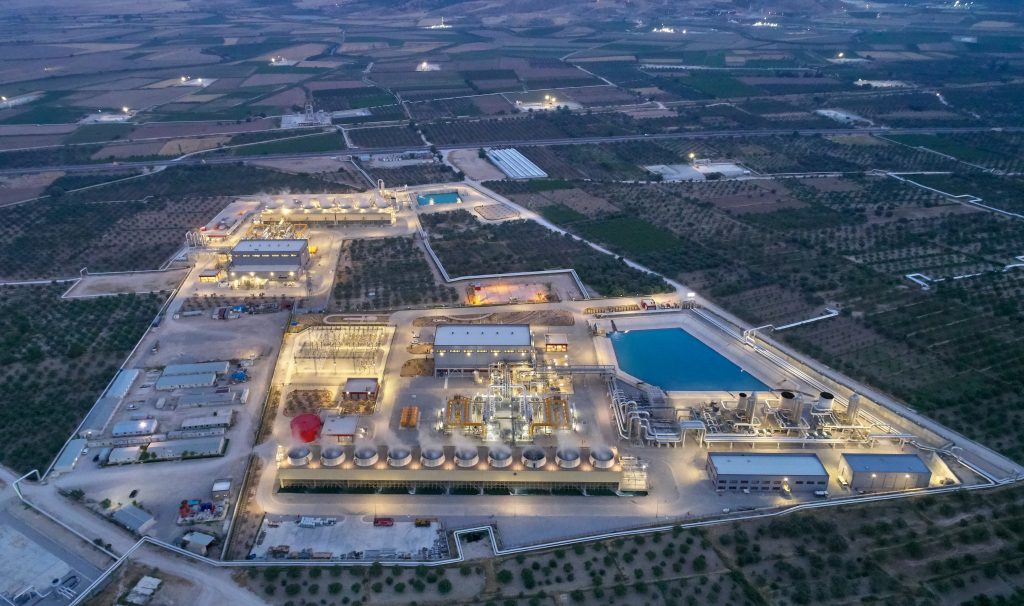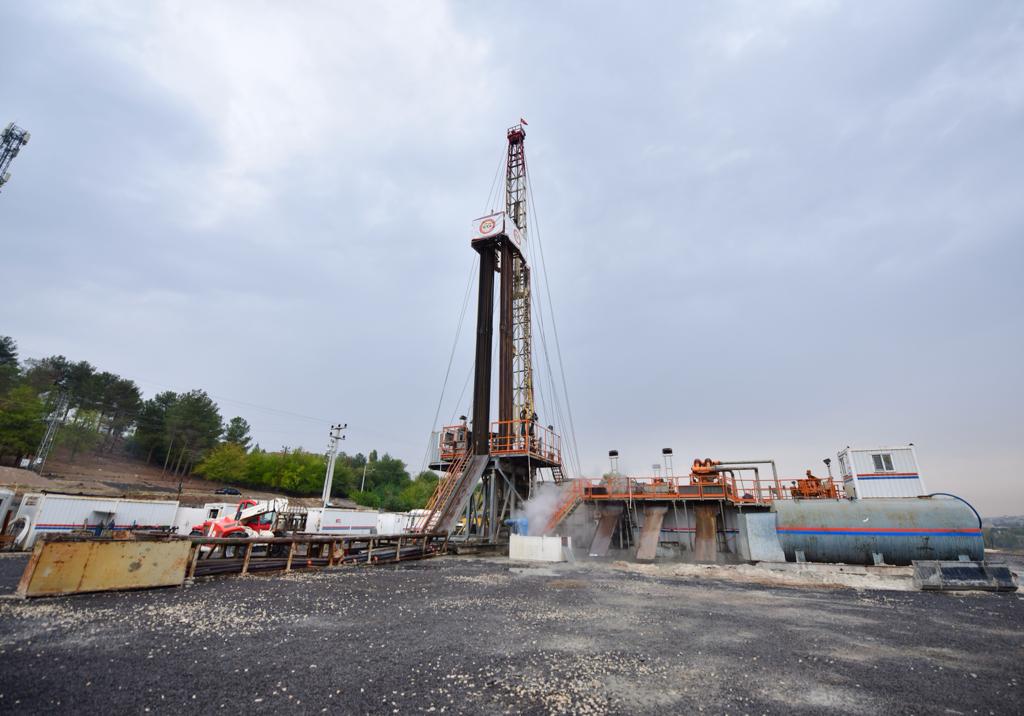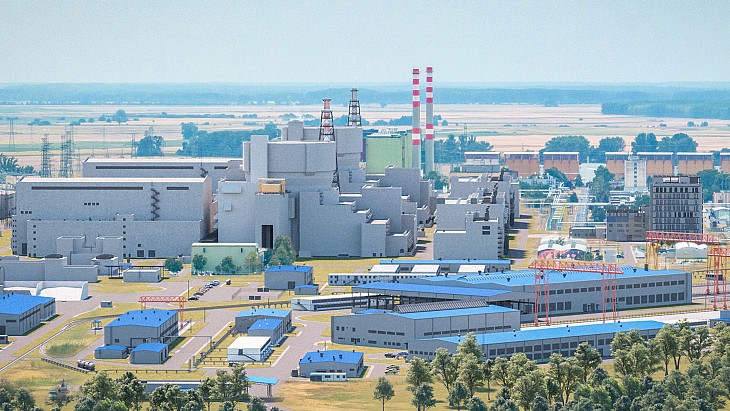
How the new plant could look (Image: Paks II)
Hungary's foreign minister Peter Szijjarto said last week that the European Union had approved the amendment of contracts on the project for new Russian-built nuclear units in the country. Many European Union countries have ended, or are in the process of ending, their nuclear energy links with Russia as a result of the war with Ukraine. Hungary, however, is pushing ahead with its project to install new nuclear capacity with Russia's Rosatom and has said it opposes the inclusion of nuclear in EU sanctions lists.
In a statement to World Nuclear News explaining the approval, a European Commission spokesperson said: "The notified amendments of the contracts concern both the construction contract as well as financing of the Paks II nuclear power plant between Hungary and Russia. Any further amendments of the contracts in the future will have to be notified as well.
"In its reply to the Hungarian authorities, the commission has also reminded Hungary that the continued implementation of the agreements and contracts for Paks II does not contribute to the EU’s aim to reduce its energy dependencies on Russia, and to diversify its energy sources. It is important that throughout the performance of the agreements, Hungary ensures compliances with the EU’s sanctions framework."
The Euratom Treaty binds Hungary to notify the European Commission about any "significant changes" to the investment project and related agreements between Hungary and a third country "as well as any changes in the supply contracts for nuclear materials to the Euratom Supply Agency". The notification and assessment under the Euratom Treaty are independent of "any legal requirement which may exist under the Treaty of the Functioning of the EU in relation to public procurement, competition and environmental rules".
In its statement the European Commission, which is the executive arm of the European Union, said it was informed in April of the modifications to the project - firstly a "draft amendment to the Financial Intergovernmental Agreement between Hungary and the Russian Federation" and secondly modification to the "engineering, procurement and construction contract for the construction of Paks II Nuclear Power Plant Units 5 and 6".
Article 103 of the Euratom Treaty says: "Member States shall communicate to the Commission draft agreements or contracts with a third State, an international organisation or a national of a third State to the extent that such agreements or contracts concern matters within the purview of this Treaty. If a draft agreement or contract contains clauses which impede the application of this Treaty, the Commission shall, within one month of receipt of such communication, make its comments known to the State concerned."
The European Commission explained to World Nuclear News that: "According to the internal assessment involving the commission’s relevant services, the modifications did not impede the application of the Euratom Treaty in the meaning of Article 103. Nevertheless, the commission in its reply has requested certain clarifications with regard to the amendments made. Hungary was further reminded of the commission comments from the previous commission replies to notifications according to the Article 103."
Details of the amendments to the contracts have not been published but Szijjarto said at the time they were signed that after going through "long negotiations", saying that even without the war and sanctions "life and the technological situation have changed so much" in the past nine years that the contracts would have needed amending.
The Paks II project was launched in early 2014 by an intergovernmental agreement between Hungary and Russia for two VVER-1200 reactors to be supplied by Rosatom, with the contract supported by a Russian state loan to finance the majority of the project. The application was submitted in July 2020 to construct Paks II alongside the existing Paks plant, 100 kilometres southwest of Budapest on the banks of the Danube river. Hungary's National Atomic Energy Office issued the construction licence in August 2022. In January this year, Hungary's Energy Minister Csaba Lantos said the Paks II plant was now expected to be completed in 2032.
The existing four units at Paks are VVER-440 reactors that started up between 1982 and 1987 and they produce about half of the country's electricity. Their design lifetime was for 30 years but that was extended in 2005 by 20 years to 2032 and 2037. In December, the Hungarian Parliament approved a proposal to further extend their lifespan, which means preparations can begin on operating the nuclear power plant into the 2050s.
